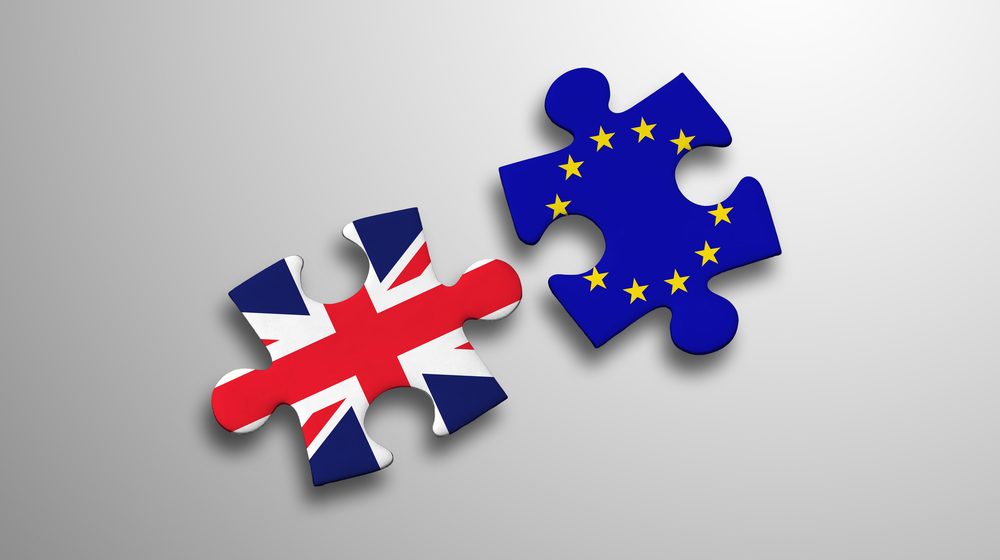According to social media in Russia, “Brexit” has just assumed a new meaning: you say goodbye, but never leave. Vasilij Petrovich has drunk half a bottle of vodka, broken some precious porcelain, offended the hosts, and despite saying goodbye, he is still sitting at the table and drinking. You feel like pushing him out to the cold, but this would create more problems than keeping him in.
This story reflects the current European dilemma. For many years, the United Kingdom enjoyed the benefits of European integration without trying to become a constructive, let alone affectionate, EU member. Two years ago, it decided to leave the EU, but is still pondering whether to leave through the door, window or chimney. The UK is still at the table resembling a drunken Petrovich and making the rest of the EU nervous. You feel like pushing it out to the cold, but this may prove problematic for a variety of reasons. This is not about a long-standing friendship. States have interests, not friends, and if there ever was any friendship, the British politicians and most of the press have done enough to tarnish it.
Yet Europe is a highly integrated polity at present. You can’t untangle twenty thousand common regulations without any pain and side effects. You may well say that the Brits should pay for their obnoxious behaviour. But if you listen to continental firms, the pain will also be felt by them and their workers. I am not even talking about millions of European citizens depending on a modus vivendi with the “perfidious Albion.”
The claim that Brexit is only a British problem represents a dishonest and dangerous way of arguing. Divorce is never a simple affair; as the saying goes, it takes two to tango. In Brussels, nobody seems to assume the responsibility for losing the United Kingdom: Mr Barnier negotiated a fair deal with Mrs May and if the British Parliament does not like it, so be it. However, the EU’s contribution to the divorce affair is not just a legal blueprint for the divorce settlement. In fact, the EU is right to insist on the backstop arrangement regarding the Irish border; compromising on this under the pressure of the Democratic Unionist Party of Northern Ireland would betray the Republic of Ireland, the EU member state the most profoundly affected by Brexit.
However, marriages usually break down over a long period of time due to evaporating affection and a failure to realize the initial expectations, if not dreams. The question EU officials ought to be addressing is why British citizens opted for the exit. Suggesting that the Brits are somehow less European is not a very convincing answer. Nor is it plausible to believe that they were simply manipulated by the Euro-sceptic tabloids. When the French and Dutch were given a chance to express their view on the European Constitution in 2004, they also voted NO, in relatively greater numbers. In recent years, anti-European politicians have made headway across the entirety of Europe. Clearly, there must be something wrong with the way the EU functions, and we need to have a serious discussion about this rather than simply blaming the ungrateful Brits and the populist politicians at home.
The truth is that the EU has failed to create meaningful ways for citizens’ participation. Instead of protecting citizens from the effects of globalization, the EU has become a vehicle of globalization. Even the strongest European economies struggle to generate growth, and Europe’s welfare systems are collapsing. The European Commission seems to listen to some 30,000 lobbyists in Brussels, but not to average citizens, especially those living in poverty. European migratory and foreign policies are often immoral and ineffective. Conflicts within the EU itself abound, between the creditor and debtor countries, the importers and exporters, those within the Euro and those outside it, those concerned about Ukraine and Russia and those concerned about North Africa.
All this does not mean that European integration is a misguided project and we should go back to the politics of walls and national glory. This means that if we want to regain the trust of citizens, British and European alike, we need to introduce fundamental reforms of the EU. The last serious reform of the EU was agreed in Maastricht in 1991. Since then, Europe has undergone three powerful “unbounding” revolutions: geopolitical, geo-economic and digital. No wonder our European institutions are not fit for purpose. No wonder our citizens are getting unhappy about the present-day EU. Urging the Brits to change their mind about Brexit without proposing far-reaching reforms of the EU is pointless.
Unfortunately, European leaders seem to ignore these simple truths. Brexit is for them a device to be used to scare potential Euro-sceptics across the continent. The result of this tactic is perverse; the Euro-sceptic politicians no longer want to leave the EU, they want to take it over. Matteo Salvini’s recent meetings with Viktor Orbán and Jarosław Kaczyński testify to that. We may soon experience not only the EU without the United Kingdom, but also the EU with a Euro-sceptic Commission and Parliament. Two things can be done in the coming months to prevent this scenario: The clock of the Brexit agenda can be stopped, and a message of change can be pronounced in the campaign ahead of the European Parliamentary elections.
The Brits have run out of options, and they are likely to ask to suspend Article 50 in order to avoid crashing out with no deal. Crashing out would have devastating implications not only for the Brits, but also for Europeans, and the latter are psychologically not prepared for this. The British proposal is likely to be vague and prone to manipulation, but I urge EU leaders to accept it. This would be an important recognition that we are in this boat together and we want to share the responsibility for the future of the continent. Yet suspending Article 50 is only a temporary devise allowing us to gain some precious time for coming up with a serious reform agenda.
So far, proposals for genuine change are only coming from the fringe led by such figures as Thomas Piketty and Yanis Varoufakis. It’s time that European liberal leaders get their acts together and propose their own progressive vision of a new Europe. As the public support for the “yellow vests” protests shows, Emmanuel Macron’s vision of Europe and France satisfies the privileged few rather than the wider societal strata. A new, bold, and egalitarian vision of Europe may help liberal leaders to withstand the assault of populist politicians at the forthcoming European elections. It may even make some Brits change their mind about Brexit. We deserve a Europe that works for most of its citizens, including the British ones. Solidarity should be the key European word, not just growth, competition and power projection.
A German version of this article with the title Ohne Briten wird’s auch nicht besser was originally published by Die Zeit on January, 22nd.
Jan Zielonka’s Counter-Revolution: Liberal Europe in Retreat (Oxford: Oxford University Press, 2019) was recently published in German as Konterrevolution. Der Rückzug des liberalen Europa, (Frankfurt: Campus, 2019).







